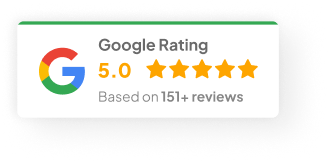24 Sep 25
Ethical Dilemmas in AI-Driven Marketing: What Marketers Need to Know
AI isn’t creeping into marketing anymore—it’s already running the show in a lot of places. From predictive analytics to automated chatbots and even content writing, the tools promise speed and personalization at a scale that would’ve been impossible a decade ago.
But power always comes with a flip side.
And here, the flip side is messy: privacy concerns, blurred lines between persuasion and manipulation, algorithms showing bias. These aren’t “future problems”—they’re happening now. Brands that ignore them risk losing trust, fast.
1) Privacy vs. Personalization
This one keeps marketers up at night. AI feeds on data. But how much is too much?
The numbers show a shift. 63% of consumers globally don’t trust AI with their personal data, compared to 44% in 2024. That’s a jump that can’t be ignored. People like the perks of personalization, but they’re uneasy about how much companies know and how it’s stored.
The brands that stay on the safe side usually:
- Tell people what’s being collected
- Explain the “why” in simple words
- Remember it’s a privilege, not a right
2) Transparency and Disclosure
Nobody likes being tricked into thinking they’re talking to a person when it’s actually a bot. That line between human and machine is thin, and if it’s crossed without honesty, people feel cheated.
A Lippincott survey found 46% of people trust a brand less if they later realize an interaction was AI-driven. Almost half. That’s huge.
The lesson? Be upfront. Whether it’s an AI-written email or a chatbot reply, transparency is what keeps credibility intact. And increasingly, it’s what sets brands apart.
3) Bias and Fairness
AI reflects the data it’s trained on. And since data is full of human bias, the results can be skewed in ways that hurt real people.
Research flagged this already: AI-generated slogans and campaigns varied noticeably across gender, income, and education groups. It’s easy to imagine how that could reinforce stereotypes or even exclude whole demographics.
Marketers can’t just “hope for the best” here. It means running regular audits, diversifying training sets, and stress-testing campaigns for unintended outcomes. Fairness isn’t optional—it’s part of building sustainable growth.
4) Manipulation and Autonomy
Marketing has always been about persuasion. But AI can push it into manipulation if left unchecked. Algorithms are scarily good at spotting emotional triggers and pressing them until someone clicks “buy.”
No surprise then that a Marketing Week survey showed 57% of consumers have little to no trust in brands using AI responsibly. A lot of that distrust comes from the fear of being manipulated.
Ethical use of AI means drawing a clear line. Use it to inform, simplify choices, even nudge a little. But don’t box people into corners with tricks or “dark patterns.” That’s a fast way to lose long-term loyalty.
5) Accountability and Governance
Here’s the thing: when AI messes up, the blame doesn’t land on the algorithm—it lands on the brand.
Problem is, most companies aren’t ready. Only 38% of businesses have formal AI marketing guidelines, with another 35% still in the planning stages. That leaves a lot of room for mistakes.
Governance doesn’t have to be fancy. Clear policies, audit trails, and accountability boards go a long way. Waiting for regulators to force the issue is a gamble that rarely pays off.
6) Trust and Reputation
At the end of the day, this all circles back to trust. And once that’s gone, it’s hard to win back.
A regional survey showed 56% of consumers in APAC will walk away from brands they don’t trust. That’s more than half of an entire market segment, gone.
Yes, hyper-targeted AI campaigns might deliver quick wins. But long-term? Mishandling AI can wreck reputation and loyalty. On the flip side, companies that bake ethics into their AI use actually gain a competitive edge. Trust becomes part of the brand story.
What Marketers Can Do Right Now
It’s not rocket science. Start simple:
- Disclose when AI is in use
- Collect less, protect more
- Audit systems for bias regularly
- Avoid manipulation tricks
- Put governance structures in place
- Treat trust like currency; it’s the real competitive advantage
Conclusion
AI in marketing is powerful. No doubt about it. But it isn’t neutral. The way it’s used determines whether customers feel respected or exploited. Brands that get the ethics right won’t just dodge backlash, they’ll stand out as the ones people actually want to stick with.


